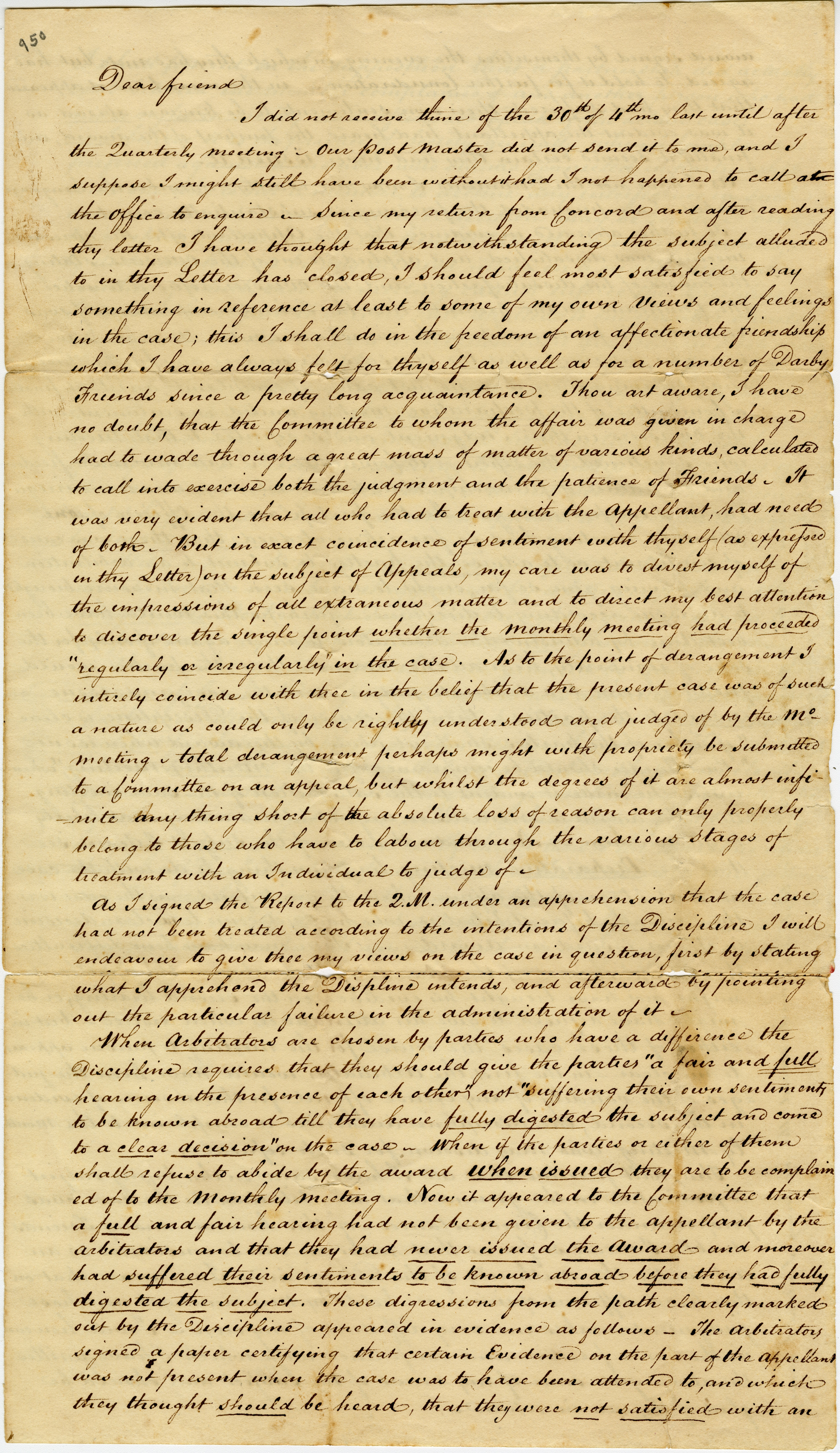I did not receive thine of the 30th of 4th mo last until after
the Quarterly meeting. Our Post Master did not send it to me, and I
suppose I might still have been without it had I not happened to call at
the Office to enquire. Since my return from Concord and after reading
thy letter I have thought that notwithstanding the subject alluded
to in thy Letter has closed, I should feel most satisfied to say
something in reference at least to some of my own views and feelings
in the case; this I shall do in the freedom of an affectionate friendship
which I have always felt for thyself as well as for a number of Darby
Friends since a pretty long acquaintance. Thou art aware, I have
no doubt, that the Committee to whom the affair was given in charge
had to wade through a great mass of matter of various kinds, calculated
to call into exercised both the judgment and the patience of Friends. It
was very evident that all who had to treat with the appellant, had need
of both. But in exact coincidence of sentiment with thyself (as expressed
in thy Letter) on the subject of appeals, my case was to divest myself of
the impressions of all extraneous matter and to direct my best attention
to discover the single point whether the monthly meeting had proceeded
"regularly or irregularly in the case. As to the point of derangement I
intirely coincide with thee in the belief that the present case was of such
a nature as could only be rightly understood and judged of by the mo
meeting, total derangement perhaps might with propriety be submitted
to a Committee on an appeal, but whilst the degrees of it are almost infi-
nite any thing short of the absolute loss of reason can only properly
belong to those who have to labour through the various stages of
treatment with an Individual to judge of.
as I signed the Report to the Q. M. under an apprehension that the case
had not been treated according to the intentions of the Discipline I will
endeavour to give thee my views on the case in question, first by stating
what I apprehend the Displine intends, and afterward by pointing
out the particular failure in the administration of it.
When arbitrators are chosen by parties who have a difference the
Discipline requires that they should give the parties "a fair and full
hearing in the presence of each other" not "suffering their own sentiments
to be known abroad till they have fully digested the subject and come
to a clear decision" on the case. When if the parties or either of them
shall refuse to abide by the award when issued they are to be complain
ed of to the monthly meeting. Now it appeared to the Committee that
a full and fair hearing had not been given to the appellant by the
arbitrators and that they had never issued the award and moreover
had suffered their sentiments to be known abroad before they had fully
digested the subject. These digressions from the path clearly marked
out by the Discipline appeared in evidence as follows. The arbitrators
signed a paper certifying that certain Evidence on the past of the appellant
was not present when the case was to have been attended to, and which
they thought should be heard, that they were not satisfied with an

